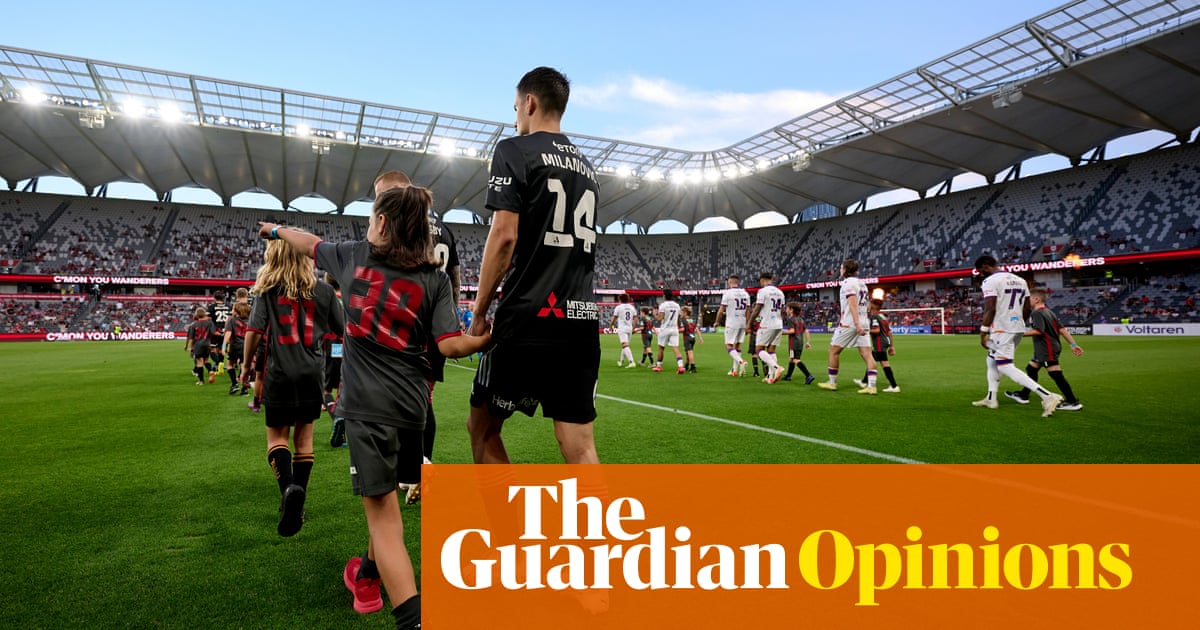
There have been a number of surprising omissions from World Cup squads this summer – Mauro Icardi, Radja Nainggolan, Joe Hart and Jack Wilshere among them – but Joachim Löw’s decision to leave Leroy Sané at home has undoubtedly been the biggest. The PFA Young Player of the Year and Premier League winner enjoyed a superb season for Manchester City, with his absence from the Germany squad shining further light on the remarkable talent at the reigning champions’ disposal.
Faced with the choice of Sané and Julian Brandt for his final spot out wide, Löw went with the Bayer Leverkusen youngster. “That was a very close decision between him [Sané] and Julian Brandt,” said the head coach. “Draxler, Reus and Müller are set. Leroy is a huge talent. He will be back again from September. He had not arrived in international matches yet. It was a very close decision. If it was a 100 meter race, it would have been a photo finish. There are certainly easier days in the life of a national team head coach than the day where I have to send players home. The disappointment was huge, as you would expect. It’s as if you are stood at the check-in desk for your flight to Moscow, but are then prevented from boarding.”
None of the players picked instead of Sané can match his statistics for the season just finished. The City forward scored 10 goals and set up 15, meaning he had a direct hand in 25 goals – more than any player under 23 in Europe’s top five leagues. In comparison, Brandt scored a respectable nine goals in the Bundesliga but registered just three assists; Marco Reus scored seven goals in 11 appearances for Borussia Dortmund but did not pick up a single assist; and Julian Draxler had a direct hand in just nine league goals at PSG where he was in and out of the team. In addition, Sané’s average of 3.2 successful dribbles per 90 minutes was substantially more than Draxler (2.4), Brandt (1.7) and Reus (1.3) achieved and his ability to get in behind opposing defenders is something Germany may may miss.
That being said, Löw made the decision with the philosophy of the national team in mind. Dribbling is not as important to Germany as picking a pass through the opposition. Brandt was also favored as he has more experience of playing from the right flank – where Müller is the only other option in the squad. Both players are the same age, 22, but the Leverkusen winger has earned more international caps (15 to Sané’s 12) and, while Brandt has not exactly set the world alight at international level, he has at least scored for his country – unlike Sané.
Sané has impressed for City but he hasn’t come close to replicating his league form for Germany, who do not use the width of the pitch the way Pep Guardiola’s team do. Manchester City employed the same tactic over and over again this season as they racked up 106 league goals. Kevin De Bruyne or David Silva would pick a pass between the opposing full-back and center-back for their wingers to collect, cut in and roll the ball across the six-yard box for a tap-in.
That tactic helped Sané post exceptional figures, with his assist tally almost entirely dependent on that blueprint. Sané hugged the touchline before bursting behind his full-back, but Germany do not play that way. With Sané’s best traits underused by the national team, he is not the same threat. In general play he doesn’t have the same technical ability as those players chosen ahead of him.
Sané offers something the squad lacks: electric pace and unpredictable movement, which would be a weapon from the bench at the very least. However, his performances on the international scene haven’t stacked up to those of Marco Reus – who has missed the last two major tournaments through injury but is fit again – and Julian Draxler, who is something of a favorite of the coach given his ability to switch positions with Mesut Özil if necessary.
Germany should have little problem escaping a group containing Mexico, Sweden and South Korea but variety will become more important in the latter stages of the tournament, their natural habitat – they have reached the semi-finals, at the very least, in their last six major tournaments. If the reigning champions fail to reach the last four, Löw should expect to field plenty of questions about whether it was a mistake to overlook a player who has been in blistering form for his club, if not his country, over the last year.The Guardian Sport












